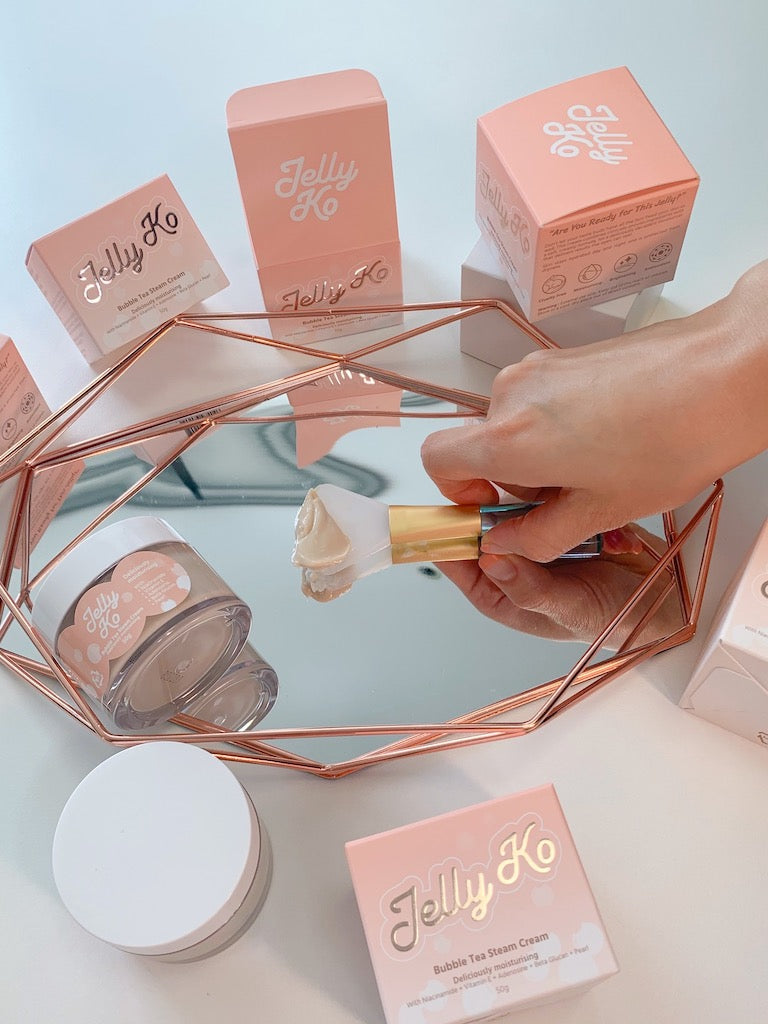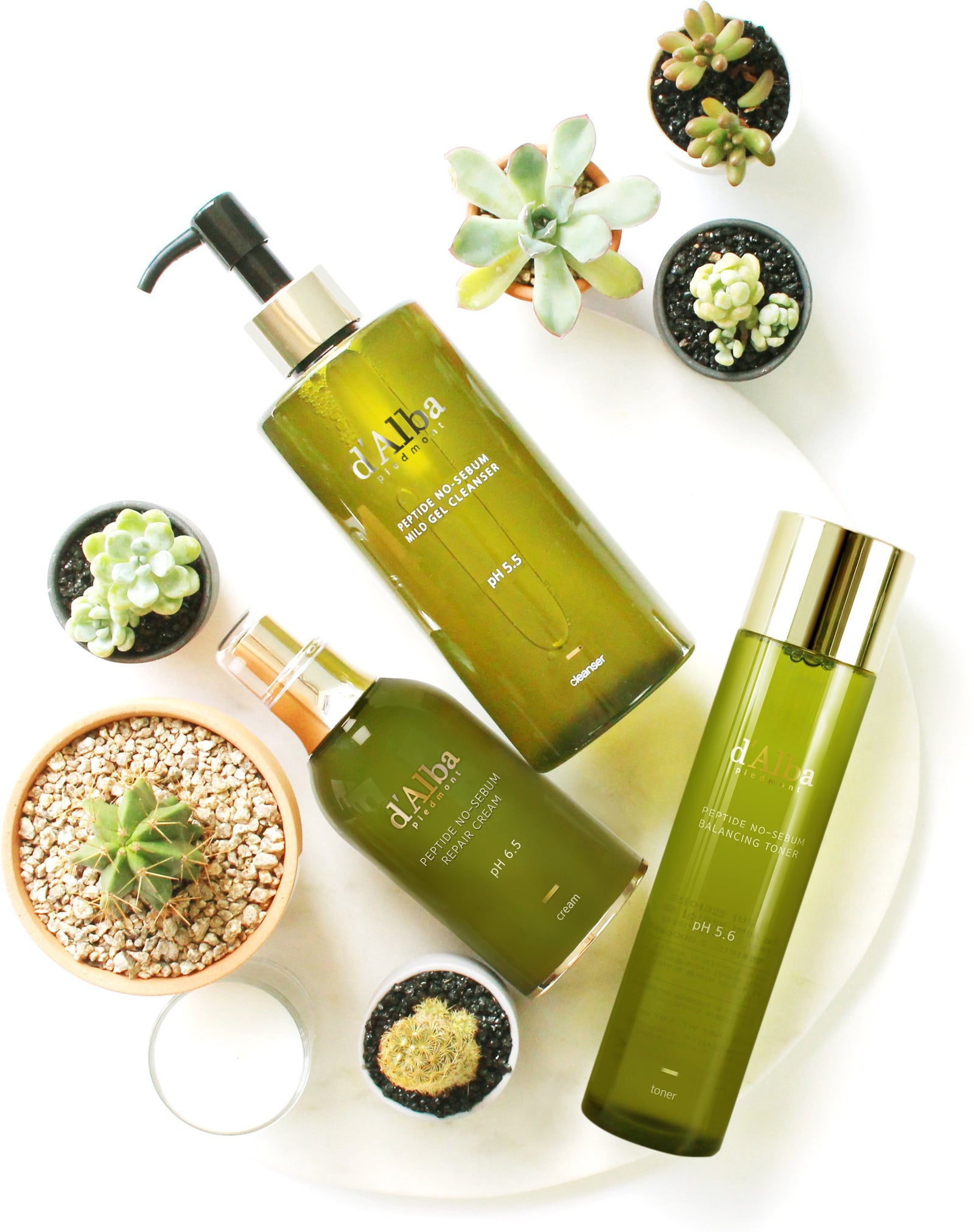The Korean Beauty Show 🎧 Your K-Beauty audio library starts here →
Menu
2025 Korean Beauty Trend Forecast: Skincare Ingredients
January 06, 2025

2025 Korean Beauty Trend Forecast: Skincare Ingredients
Which skincare ingredients are we going to be seeing in Korean skin care in 2025? On episode 257 of the Korean Beauty Show podcast, K-Beauty expert Lauren Lee is sharing part 1 of her predictions for the top Korean beauty trends we’re going to be seeing more of in 2025.
CONNECT WITH ME
2025 Korean Beauty Trend Forecast: Ingredients
While a lot of this might sound like gazing into the future, the reality is that in the beauty industry we usually see some pretty strong signs of what's coming next before certain trends really blow up.
I attend a lot of industry events, trade shows and expos throughout the year that give pretty clear signals of what brands, companies and consumers are focused on.
What We Won't Cover on This Episode
The other thing is that Korean beauty is very trend based but we are seeing more trends carry though year on year these days.
Some key trends I think we will continue to see that I'm not going to cover in this episode because we have already covered them in length before include:
- Skin microbiome and microbiome-friendly ingredients
- Here are links to my previous podcast episodes on this:
- "Clean Beauty" trend
- Here are links to more episodes covering this trend:
- Retinol
- Now that Korean beauty companies have worked out how popular retinol is, we can expect to see even more of this in 2025.
The other key ingredients I think we'll be seeing more of in 2025 are Exosomes, PDRN, Ectoin, Heartleaf and Peptides particularly in the global markets.
I think we will continue to see a move away from the plant-based ingredients that have dominated for the last few years.

2025 Korean Beauty Trend Forecast: Exosomes
The Science behind Exosomes:
Exosomes actually have a significant body of research behind them.
When used in injectables, they can stimulate collagen and elastin production, which are essential for maintaining firm and youthful skin. By promoting collagen synthesis, exosomes can help reduce the appearance of wrinkles and improve skin elasticity, making them an effective anti-aging treatment.
Research has shown that they can enhance the skin’s natural healing processes by stimulating cell proliferation, migration, and new blood vessel formation. All of this is beneficial for accelerating wound healing and reducing scar formation.
Some exosomes on the market are derived from plants and others from animals.There are also human-derived exosomes, which can also be extracted from sources like bone marrow and placental tissues.
How Much Of This is Transferrable to Topical Skincare Products?
Based on the research I have seen, there is very little chance that exosomes are doing any of the above (i.e. stimulating cell proliferation) when they are used in a topical skin care formulation.
There is a big difference in products that are being injected into the skin in clinical treatment after microneedling vs a serum product being sold on store shelves.
Exosomes also known to be quite unstable so it is unlikely that they are effective in cosmetics products for long. There is a difference between the efficacy of a product used under controlled conditions in a clinical setting versus an ingredient that is slapped into regular cosmetics.
It's certainly not something I would go out and spend a lot of money on in your topical skin care products just yet. If you are in a clinical setting where exosomes are on the menu that is the kind of thing I would be paying more attention to.

2025 Korean Beauty Trend Forecast: Ectoin
The Science Behind Ectoin:
Ectoin was originally discovered in some of the harshest conditions on earth - salt lakes, deserts etc. It's known as an "extremolyte," which is something that acts to shield organisms by stabilizing their proteins and cell membranes to protect them against things like extreme heat, cold, and dryness.
It is a natural amino acid derivative that offers excellent effects on the skin. One of the reasons I love it is that it combines the functions of multiple skin care ingredients in one (hyaluronic acid, niacinamide, ceramides etc)
- It guards skin cells from oxidative stress, thereby reducing irritation;
- Enhances skin resilience against environmental aggressors;
- Is capable of strengthening the skin's barrier;
- Can help minimise moisture loss, which not only boosts hydration but also defends against dryness and sensitivity.
Korean beauty focuses a lot on keeping the skin's barrier in tip-top shape and Ectoin is a great ingredient for that.
In topical skin care products, Ectoin has moisturising effects, providing intense moisture. It can also soften the appearance of wrinkles and fine lines.
K-Beauty Products With Ectoin:
- Jelly Ko Cherry Blossom Sleeping Mask - we actually updated our formula this year to include Ectoin and removed artificial fragrance as well so that even more people can use it.
Source: In-vivo-Assessment-of-Ectoin-A-Randomized-Vehicle

2025 Korean Beauty Trend Forecast: PDRN
The Science Behind PDRN:
PDRN (Poly deoxy ribo nucleotide) is a proprietary and registered drug extracted from salmon's DNA that possesses tissue repairing, anti-ischemic, and anti-inflammatory properties. However, these are therapeutic uses in regenerative medicine.
This is actually not a new ingredient and has been being used in K-Beauty for quite a while. There is a resurgence at the moment thanks in large part to a few TikTok viral brands with large marketing budgets - Genabelle, VT, CNP, Rejuran, Medicube etc. You’ll often hear it be referred to as “Salmon Sperm”.
Arguably the most well known brand in Korea is Rejuran, who makes a series of injectables that target everything from acne scars to a damaged skin barrier. These are known as "skin boosters" and are used in clinical settings like dermatology offices and in skin clinics. They are extremely popular in Korea and are spreading in popularity overseas as well.
When it comes to the topical versions (i.e. skin care products containing PDRN) the results are not as certain. On the one hand, a lot of people really enjoy using these products. On the other hand, the data is not really there to back up a lot of the claims being made.
I think where you’ll see the best results is from injections like Rejuran. For me personally, this is where I would save up to spend my money rather than on topical skin care products.
K-Beauty Products With PDRN:
Source: S2096691122000723

2025 Korean Beauty Trend Forecast: Heartleaf
The Science Behind Heartleaf:
Heartleaf extract comes from Houttuynia cordata, a flowering plant native to Southeast Asia. Rich in flavonoids and polyphenols, it is known for its natural antibacterial and anti-inflammatory properties. It can help to calm irritation, prevent breakouts, and neutralize free radicals.
However, just because heartleaf possesses these properties doesn't mean that every product containing heartleaf will also do all of this for your skin. It comes down to the percentage being used in the product, its purity and a whole range of other factors.
I would put this ingredient in a similar category to Centella asiatica and to a lesser extent, mugwort.
Some of the claims about some of the products may be a little bit iffy but in general heartleaf has good potential to soothe the skin.
K-Beauty Products Containing Heartleaf:

2025 Korean Beauty Trend Forecast: Peptides
The Science Behind Peptides:
Peptides are the building blocks of proteins and there is a lot of data supporting their use in topical skin care products. They can penetrate the skin to moisturize it and help smooth fine lines and wrinkles
These are not new ingredients but they are definitely still trending and will remain so in 2025.
There are hundreds of types of peptides (tripeptides, copper peptides, hexapeptides etc) with different functions for your skin but in general they offer skin-restoring benefits. They can help keep your skin younger looking by moisturising it, and improving your skin's microbiome.

As with many other skin care ingredients it pays to temper your expectations when it comes to the benefits peptides will actually provide for your skin.
Korean Beauty Products Containing Peptides
STYLE STORY - Your Go-To for K-Beauty Since 2014
All products recommended on the Korean Beauty Show podcast are selected by us. Some of our Show Notes include affiliate links. If you buy something through one of these links we may earn an affiliate commission. This helps offset the costs associated with producing the podcast.




Leave a comment
Comments will be approved before showing up.